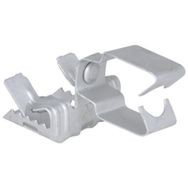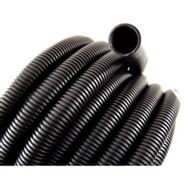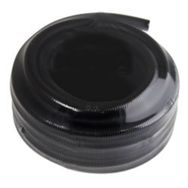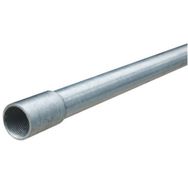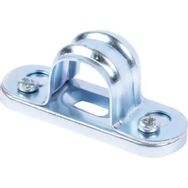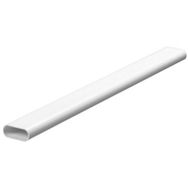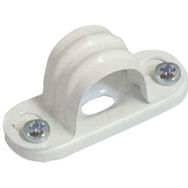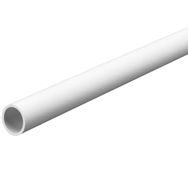Conduits
A conduit is designed to protect essential electrical wiring from damage along the route it is installed. From metal conduit fittings to conduit beam clips, you're sure to find what you're looking for with YESSS Electrical.
Our vast range of conduits is sourced from leading brands for long-lasting durability and protection.
Shop conduits from leading brands at YESSS and get free UK delivery on orders over £50 (excluding VAT).
FAQs
What are electrical conduits and why are they used?
Conduits are designed to route cables and wires around commercial buildings and structures, keeping the wires organised and protected from damage or moisture. They are an integral part of compliance with building regulations and help to reduce the risk of hazards such as electric shocks and fires.
How do I choose the right type of conduit for my project?
Metal conduits are usually made of strong and durable materials such as galvanised steel and aluminium to protect the cables from damage. Rigid metal conduits are ideal for installation in exposed areas or for routing in straight runs, while a flexible metallic conduit combines strength with pliability.
PVC and HDPE conduits provide more flexibility than metal conduits and are corrosion-resistant too. They are perfect for manipulating to protect wires in smaller spaces and bends.
What conduit accessories do you supply?
At YESSS Electrical we stock a wide range of conduit accessories for secure and hassle-free conduit fittings. You'll find everything you need, from conduit beam clips, 2-way steel boxes, rubber gaskets for circular conduit boxes, adaptors and lids.
Can I use conduits for indoor and outdoor applications?
Conduits can be used both indoors and outdoors, buried or exposed, but it is important to check the durability of your conduit before installation. Look for UV-resistant PVC or hard-wearing metal such as galvanised steel to ensure any external links are protected against sunlight, moisture and corrosion.
Unsuitable electrical conduit pipe materials can lead to deterioration, affecting the functionality of the electrical wires and increasing the risk of electrical dangers.
What’s the difference between flexible metallic conduit and rigid conduit?
Flexible metallic conduit offers increased flexibility and is ideal for tight spaces or areas that require frequent removal or replacement of wiring. Rigid conduit, such as EMT or galvanised steel, is more robust and suitable for long, straight runs or outdoor installation where impact protection is essential. Choosing between the two depends on your project’s space, route, and protection requirements.
Do electrical conduit fittings come in different sizes and materials?
Yes, electrical conduit fittings come in a variety of sizes, materials, and types. From threaded fittings to bushings, couplers, and boxes, you’ll find options in PVC, steel, and other durable materials to match the tube, diameter, and wall thickness of your chosen conduit. These accessories are designed to secure and join lengths of conduit and provide safe and tidy connections.
Can conduits be used for both electrical and communications purposes?
Absolutely. Conduits are designed to protect not just power cables, but also communications wiring such as telephone lines and data cables. Using the correct channel helps enclose and route wiring securely through a building, reducing the risk of damage and moisture exposure.
How do I determine the right length and size of conduit to install?
The right length and diameter of conduit depend on your specific installation and the number of cables being housed. Consider how much space is required for bends, the bend radius for inlet points or switches, and the type of support and fittings you’ll need. Referring to a table of conduit sizes and load capacities can help you make the right choice for many applications.
What’s the purpose of using conduit bushings and couplers?
Bushings are used to smooth off rough conduit edges, protecting wires from abrasion as they pass through fittings. Couplers are used to join two sections of conduit and are essential when extending a conduit run or connecting around obstacles. Both play a vital role in keeping cables protected and the conduit system secured.
What does IP rating mean for conduits used outdoors?
The IP rating (Ingress Protection) is a system that defines the level of protection a conduit offers against water, dust and other environmental factors. For example, an IP65-rated conduit is fully dust-tight and protected against water jets, making it suitable for exposed or wet environments. Always note the IP rating to ensure the conduit suits the conditions of your installation.
Is it possible to install conduit on the surface of a wall?
Yes, surface-mounted conduit installation is common in both domestic and commercial applications, especially where access is needed for future maintenance. Surface conduit can be neatly installed along the wall or ceiling, making it a practical idea in settings where cutting into the structure is not viable.
Can conduit be reused in future installations?
Yes, some types of conduit – particularly metal and rigid PVC – can be reused if they remain undamaged and are still compliant with safety standards. After removing the original wiring, the conduit can subsequently be fitted with new cables for another project, which can help reduce waste and overall installation costs.
Shop our electrical conduits online or visit your nearest YESSS Electrical store to shop in person.


